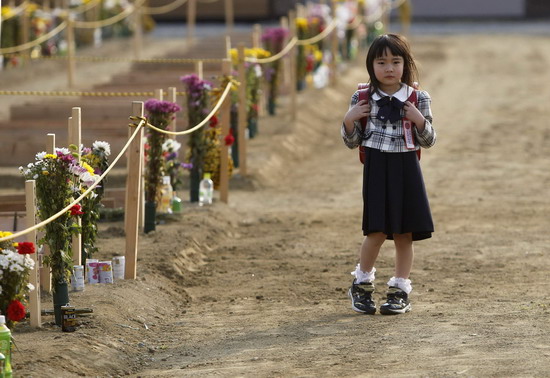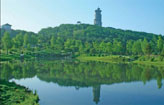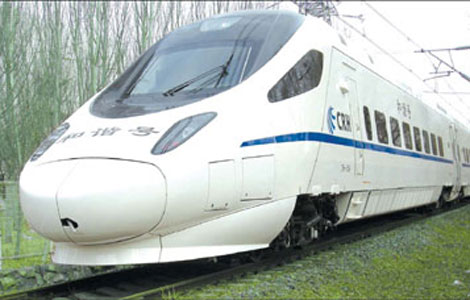Asia
Japan earmarks 1st $50b for post-quake rebuild
Updated: 2011-04-22 13:54
(Xinhua)
|
 Wakana Kumagai, 6, waits for her mother Yoshiko after visiting the grave of her father, who was killed by the March 11 tsunami, at a temporary mass grave site in Higashi-Matsushima, Miyagi prefecture, April 21, 2011, after attending an entrance ceremony of Omagari elementary school. [Photo/Agencies] |
"CAUSED GREAT TROUBLE"
Japanese Prime Minister Naoto Kan, who has been accused by opposition politicians, his own party and quake survivors of failing to take command of the country's response to the triple disaster, has said the need to rebuild is an opportunity for national "rebirth".
Kan's approval ratings are extremely low. In a Reuters poll of investors released on Friday, 83 percent of those surveyed said they disapproved or strongly disapproved of the administration's handling of the crisis.
Japan, recently overtaken by China as the world's second biggest economy, has been struggling with deflation for years.
As well as trying to rebuild the ruined northeast, Japan also has to contend with the world's worst nuclear crisis since Chernobyl in 1986, the wrecking of the Fukushima Daiichi plant, 240 km (150 miles) from Tokyo.
Radiation spilled out from the facility after a hydrogen explosion, and in their battle to cool melting fuel rods, engineers pumped radioactive water into the Pacific, a move that worried Japan's neighbours about the spread of contamination.
Masataka Shimizu, the much-criticised president of facility operator Tokyo Electric Power (TEPCO) , met Fukushima's local governor Yuhei Sato on Friday to apologise in person, the first time Sato has agreed to see the TEPCO chief.
Shimizu, wearing a blue work clothes, bowed deeply to Sato.
"I apologise from the bottom of my heart for the great trouble caused to many people in society."
Sato replied: "I want you to gather wisdom from all over the world and make every effort so that people can think that they can return to their hometowns."
Shimizu, whose company has been accused of downplaying the dangers and ignoring warnings about the risk of a quake and tsunami striking the plant, as well as reacting poorly to the damage, will later visit an evacuation centre in Koriyama city to offer an apology to those forced to leave their homes.
Japan said this week it would ban anyone entering a 20-km (12-mile) evacuation zone around Fukushima Daiichi.
Prime Minister Kan has instructed residents in some areas outside that zone to leave in order to avoid radiation, Japan's top government spokesman Yukio Edano said on Friday, but it was unclear how many people this will affect.
"We don't have the number. We will be working with local authorities in compiling this data," an official with Japan's Nuclear and Industrial Safety Agency said.
|
 Members of the Japan Self-Defense Force remove debris as they search for victims in a damaged house at an area devastated by the March 11 earthquake and tsunami, in Sendai, Miyagi prefecture, April 21, 2011. [Photo/Agencies] |
Specials

Urban breathing space
City park at heart of industrial hub positions itself as top tourism attraction

On a roll
Auto hub Changchun also sets its sight on taking lead in railway sector

The stage is set
The Edinburgh International Festival will have a Chinese flavor this year.